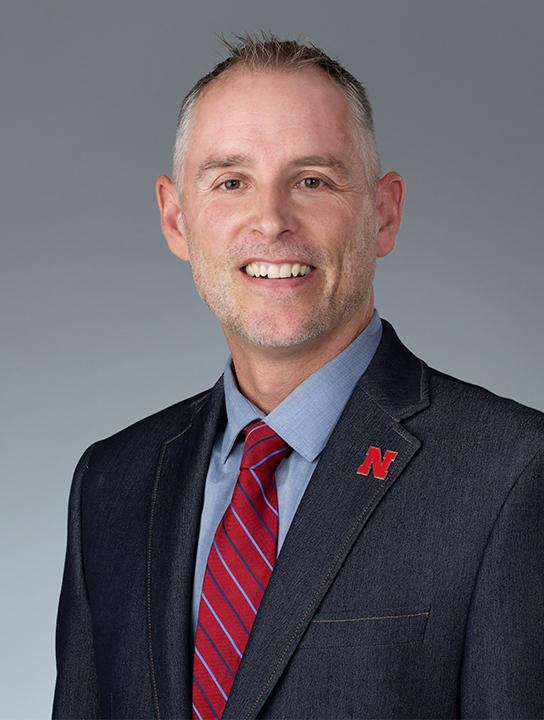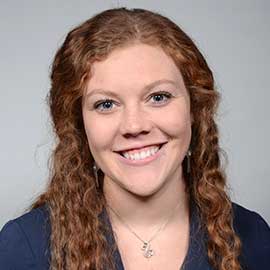
Tele-Mental Health Services Revitalize Rural Nebraskans
Creating Accessible and Acceptable Rural Mental Health Care

Tele-mental health services boost work productivity in rural Nebraska by enabling people to access confidential and effective mental health care services. As community members tend to their mental wellbeing, businesses in rural Nebraska can employ productive people and receive positive economic benefits in return.
Paul Springer, professor in the Department of Child, Youth and Family Studies and associate dean for student success at the University of Nebraska–Lincoln, works to bring mental health services to rural Nebraska. Specifically, Springer evaluates ways to make mental health services more accessible and more acceptable, which creates more effective people who can contribute to community vitality.
“When we talk about community vitality, it is really about how mental health services will increase productivity of people,” Springer said.
In other words, Springer said people with a healthy mental wellbeing will be more productive at work, helping local businesses contribute to a stronger economy.
To encourage mental wellbeing, Springer and his colleague Dr. Bischoff introduced tele-mental health services to rural communities throughout Nebraska. The virtual services, conducted via video calls, allow rural residents mental health care in a way that is private, effective, and acceptable.
Mental Health Impacts Productivity
Mental wellbeing significantly impacts employee productivity.
Springer said employees are 1.4 times less effective at work when they struggle with mental health issues. Therefore, for communities to be more economically viable, he said people should be taking time off work when experiencing mental and physical illness symptoms.
“It is costing employers money because employees cannot be present in work while they are mentally struggling,” Springer said.
Even when employees have access to mental health care services, the stigma surrounding these services prevent them from receiving care, Springer said.
“Stigma plays an important factor in whether or not people will utilize mental health services,” Springer said.
If employees view receiving mental health services negatively, employers suffer the economic consequences of having unproductive workers.
There is No Health Without Mental Health
Mental health is an integral part of a person’s physical and psychological health. Springer shared that the World Health Organization said there is no health without mental health.
Springer’s research was initially designed to develop ways for rural residents to access mental health services. However, his research found the negative stigma surrounding mental health services prevents many people from receiving mental health care. The discovery propelled him to pivot from improving mental health care accessibility to strengthening acceptability.
According to Springer, 88 of Nebraska’s 93 counties are deemed as shortage areas for mental health providers. Consequently, a majority of the public travels at least one hour outside their county to receive mental health services.
“Driving that far makes receiving mental health care seem like a bigger deal, because it seems like you are going to a specialist as opposed to just taking care of your wellbeing,” Springer said.
People put their overall health at risk when they willingly neglect their mental wellbeing. Tele-mental health options make it easier to receive care.
Tele-Mental Health Services
To combat the negative mental health stigma and boost productivity, Springer incorporated a tele-mental health services model in three Nebraska communities: Albion, Red Cloud, and Superior.
In this model, the university partners with rural hospitals and clinics to offer a more accessible and acceptable way of receiving mental health care services.
“If mental health services are not provided in a way that rural residents view as acceptable, they are not going to take advantage of it,” Springer said.
According to Springer, 80% to 85% of all local physician visits are usually mental health related. For instance, people may experience stomach aches or have trouble sleeping and perceive those as physical illnesses, when many times those are symptoms of anxiety and depression.
In Springer’s tele-mental health model, people first visit their local, trusted physician for care. When a physician identifies a patient symptoms are related to mental health, the physician refers the patient to a mental health provider via technology. Mental health providers who are Master’s students studying Marriage and Family Therapy under the Department of Child, Youth and Family Services, are not located in the same communities, so patients receive care via telecommunications, such as videoconferencing.
“Rural residents love the fact that students do not live in the community because they feel like they have some anonymity,” Springer said.
By implementing a mental health service utilized virtually and distantly, Springer said his team has seen substantial improvements in patient health. These mental health improvements ultimately lead to happier, more productive people.
Working with Rural Residents
In addition to unequal access to mental health services, the culture of rural communities poses other challenges. For example, Springer said people tend to talk more about mental health in urban areas because there are more providers and services. In rural counterparts, however, there is not always equal access to mental health services.
“There is not a ‘one-size-fits-all’ approach for mental health care,” Springer said. “One rural community’s culture is so different from another.”
The differences in each community may prohibit mental health care providers from effectively applying the same methods to each patient. If providers do not consider the differences in each community, their counseling may not be as effective.
“We take our land grant mission seriously as professors,” Springer said. “We love our Nebraskans and know that there are people in rural communities who are silently suffering. This is one way for us to be able to contribute and address this problem.”
To learn more about tele-mental services, or to meet with a mental health service provider, visit cehs.unl.edu/cyaf (https://cehs.unl.edu/cfc/couple-family-clinic/).